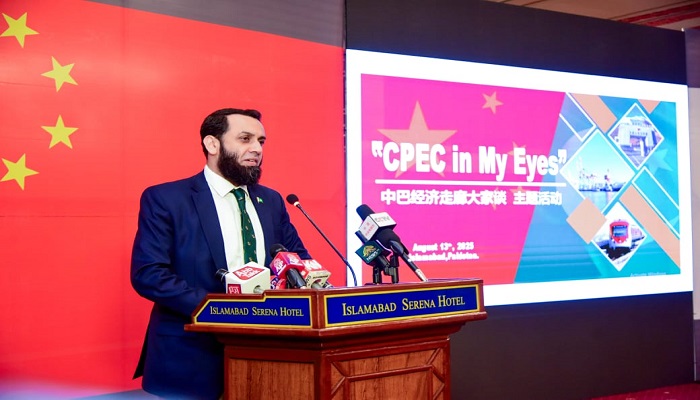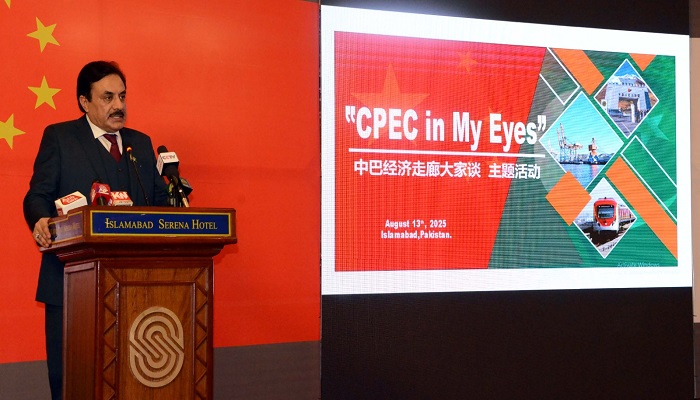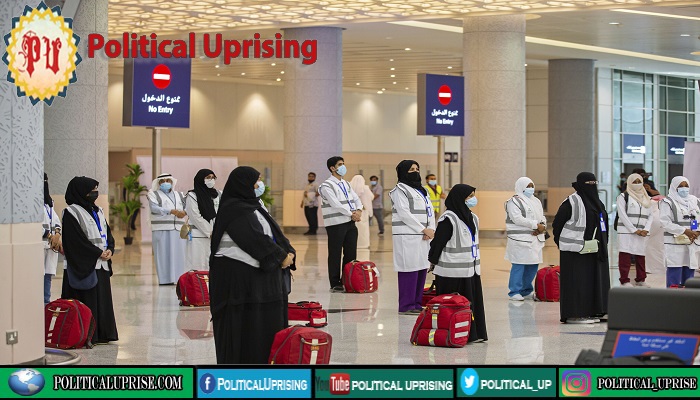At the high-level “CPEC In My Eyes” seminar in Islamabad, Pakistani and Chinese leaders declared the China-Pakistan Economic Corridor (CPEC) the cornerstone of future prosperity.
With $25 billion already invested and new goals set in artificial intelligence, trade, and the blue economy, the project is now entering a fast-tracked, people-focused phase. Speakers dismissed propaganda, reaffirmed regional unity, and vowed to build a smarter, safer, and more connected Pakistan through CPEC.
In a powerful reaffirmation of one of the world’s most strategic bilateral partnerships, the seminar highlighted the far-reaching socio-economic and geopolitical impact of CPEC, positioning it as a regional game changer and a national lifeline.
Inside Inner Mongolia: Where China’s Future Meets Its Frontier Spirit
Dignitaries included Pakistan’s Minister of Information Attaullah Tarar, Chinese Ambassador Jiang Zaidong, Deputy Chairman Senate Syedal Nasser, and other senior figures. The discussions focused on CPEC’s development milestones, future directions, and strategic cooperation beyond infrastructure including artificial intelligence, information security, and people-to-people exchanges.

Federal Minister for Information Attaullah Tarar described CPEC as a multi-dimensional bridge that strengthens generational trust, shared values, and economic cooperation between Pakistan and China.
“Our love and affection for China is passed down from generation to generation. We don’t just share borders, mountains, or rivers, we share trusted values, development, and construction. President Xi Jinping has turned this friendship into a progressive story,” he said.
Minister Tarar highlighted the significance of the annual people-to-people exchange program as a key driver strengthening Pakistan-China ties. He pointed to the Orange Line Train in Lahore as a visible symbol of how CPEC is reshaping urban infrastructure and improving everyday lives.
China Issues First Rare Earth Magnet Export Permits; Volkswagen Suppliers Included
He also emphasized Gwadar’s ongoing transformation into an international city featuring modern construction, enhanced safety, and world-class port facilities. Tarar underscored the immense potential for private sector collaboration and business-to-business agreements to economically uplift local communities.

Moreover, he reaffirmed the government’s commitment to counter misinformation and fake news through joint cooperation in artificial intelligence and digital truthfulness. “CPEC is the lifeline of our economy. It’s not just about infrastructure, it’s about people-to-people connection. We are committed to ensuring that facts prevail over propaganda,” he added.
Chinese Ambassador Jiang Zaidong emphasized the deep trust China places in Pakistan and its armed forces, praising their bravery in combating terrorism and securing CPEC projects.
From Silk Roads to Shared Stories: The Cultural Bond Between China and Pakistan
He outlined the remarkable progress achieved under CPEC, including the generation of 5,000 megawatts of electricity and thousands of kilometers of roads connecting remote regions. More than 250 million commuters have used the Orange Line Metro in Lahore, a key infrastructure milestone. The Gwadar Desalination Plant is operational, producing 1,000 tonnes of clean water daily, with plans to reach a full capacity of 5,000 tonnes per day, while Gwadar Hospital continues to serve thousands of patients.

Additionally, the ambassador noted that 1,000 tonnes of machinery have arrived to support construction efforts, and the Gwadar International Airport is on track to become a major economic hub. Highlighting broader economic improvements, he stated that inflation has dropped from 38% to 4%, foreign reserves are increasing, and economic growth is accelerating.
“Prime Minister Shahbaz Sharif assured me that his government believes in ‘work, work, and more work,’ and the results are clearly visible,” he added.
Ambassador Jiang also stressed the importance of enhancing cooperation in the blue economy, particularly in fisheries and job creation. He said, “Gwadar has massive fishing potential. We seek input from relevant stakeholders to boost employment, especially in coastal and agricultural sectors.”
He concluded with a strong message: “We believe in solving issues through development. We will counter all rumours about CPEC it is advancing at full pace. I congratulate Pakistan on its Independence Day.”
Deputy Chairman Senate Syedal Nasser, representing Balochistan, spoke passionately about the Western Route of CPEC, which he said holds both personal and national importance.
He dismissed all propaganda against CPEC, stating, “All misinformation is false and baseless. China sees Pakistan not just as a neighbor, but as a brother. The people of Balochistan support regional peace and prosperity, and any issues can be resolved through constitutional forums.”

Speakers at the seminar highlighted CPEC’s ongoing and future benefits, emphasizing its transformational impact on Pakistan’s economy and society. Pakistan has significantly increased its sugar exports to China, reaching over $18 million in 2023 a sharp rise from previous years, indicating strong potential for further growth in bilateral agricultural trade.
They also noted that the planned extension of CPEC to other regional countries will amplify its developmental and constructional footprint. Before CPEC, investor confidence was low, currency devaluation rampant, and the stock market unstable. Now, economic indicators are showing signs of recovery and stabilization.
The initiative has already created over 75,000 jobs across various sectors. Infrastructure has undergone a massive uplift, with the country moving from 16-hour daily power outages to surplus electricity, while new bridges and road networks are improving regional connectivity.
Spain’s PM Strengthens Ties with China and Vietnam Amid US Tariff Fallout
The socio-economic impact has been particularly deep in remote and previously underdeveloped areas. As one speaker aptly put it, “CPEC is not just infrastructure, it’s transformation, empowerment, and dignity for local people.”
From industrial growth and education to AI collaboration and countering digital misinformation, the “CPEC In My Eyes” seminar served as a strategic reaffirmation of the unshakable Pakistan-China partnership.
As Minister Tarar put it, “Wherever CPEC passes, it leaves behind roads, development, and hope.”



